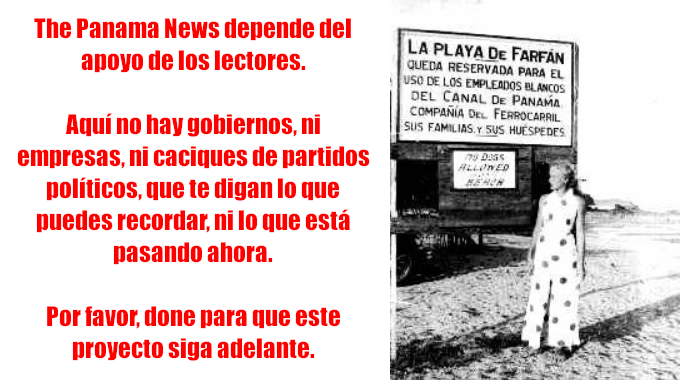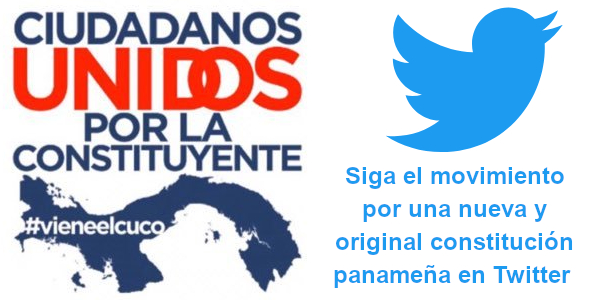A minor side note for them, maybe a big deal for us: do they become a nest of sticky-fingers who all want to squirrel their loot away in a Panamanian shell company with a numbered bank account, or does Europe get adamant against that sort of thing? Flags in front of the European Parliament. European Parliament photo.
What’s at stake in the 2024 European Parliament elections?
C. J. Polychroniou, interviewed by Alexandra Boutri – Common Dreams
Europeans go to polls this week to vote for parliament. What is at stake? Is the future of the European Union at risk on account of the surge of the far right? But is the EU even a democratic institution worth saving? And why is the left in crisis across Europe?
Political economist and political scientist C. J. Polychroniou tackles these questions in an interview with the French-Greek independent journalist Alexandra Boutri.
Alexandra Boutri: Elections for the European parliament are taking place this week from Thursday 6 June to Sunday 10 June. Some 373 million citizens across the 27 members of the E.U. are eligible to vote, but it remains to be seen whether the “surge” in participation in 2019 will continue in 2024. Let’s talk about participation in the world’s only transnational elections because the general impression is that Europeans do not take the European Parliament (EP) elections very seriously.
C.J. Polychroniou: Participation in EU elections has always been low. We saw a “surge” in participation in the 2019 EP elections in which just slightly over 50% of EU citizens cast a vote. And this was the highest turnout in 20 years. So, yes, it’s obvious that Europeans are not as excited about EU elections as they are about national elections. Votes to the European Parliament also tend to be uncorrelated to national elections in the various member states. They are really low-turnout protest votes. And the reason that Europeans do not take the EP elections seriously is because they are fully aware of the EU’s democratic deficit.
Unfortunately, there is much to be said about the EU being in essence a corporate-driven entity with power vested in an unelected and unaccountable elite.
The EP is the only directly elected EU body, yet its authority is extremely limited. Unlike national parliaments, it cannot initiate legislation. What it does is simply debate legislation and can pass or reject laws. It can also make some amendments. It is the European Commission that is solely responsible for planning, preparing, and proposing new European laws. Those laws are then debated and adopted by the European Parliament and the Council of the European Union which consists of one government minister from each member state (and is not to be confused with the European Council which consists of the heads of government of every EU country). Essentially, we are talking about a rubber-stamping exercise on the part of the EP with regard to legislation. The European Commission is the EU’s executive body, surrounded by some 32,000 permanent bureaucrats, but the European Council is the highest political entity of the union. The commission president is proposed by the European Council and then approved by the Parliament.
In sum, the EP is not a normal legislature and is clearly the weakest of the three main institutions of the EU. Brussels is also the home of European lobbying. There are more than 30,000 lobbyists in town, most of whom represent the interests of corporations, and they work very closely with EU bureaucrats and politicians. Lobby groups are involved at all levels of lawmaking. So, unfortunately, there is much to be said about the EU being in essence a corporate-driven entity with power vested in an unelected and unaccountable elite. By the same token, countries like Germany, Europe’s economic and political powerhouse, have a lot to answer for. Germany has refused to “think European” with regard to EU reform, particularly on economic restructuring, solidarity, and social cohesion. Its policies have created a major rift between Northern and Southern Europe that is having far-reaching effects on the nature of the mission of the Union.
Alexandra Boutri: There is a general feeling however that this year’s EU elections are different. They matter because of the surge of far-right ideology across Europe. What’s at stake with the 2024 European Parliament elections, and why is the far right thriving across Europe?
C. J. Polychroniou: What one hears from European heads of government and EU enthusiasts in general is that the 2024 EU elections are crucial because they will have an impact on the EU’s response to the increase in democratic backsliding. To be sure, there is serious democratic backsliding across Europe. And I am not talking about the usual suspects like Hungary under Prime Minister Viktor Orban. We have seen, for instance, how so-called liberal European democracies like Germany responded to people protesting Israel’s mass killings in Gaza. The German government has cracked down on pro-Palestine protests, raided the homes of activists, and banned speakers from the country. In Greece, its right-wing Prime Minister Kyriakos Mitsotakis publicly boasted that his government will not tolerate university students setting encampments in support of Palestine and even took the outrageous step of trying to deport students from the UK and European Union member states that took part last month in a pro-Palestinian demonstration rally at Athens Law School. It is quite an irony indeed to hear European leaders urging citizens not only to cast a vote but to act “responsibly” in this year’s EU elections. For them, apparently, democracy exists only when citizens align their views with existing government positions on domestic and foreign affairs!
Having said that, the surge of the far right across Europe is a very serious and dangerous matter. The far right poses a threat to the survival of democracy in every country in which it happens to have a large presence. I am less concerned about its threat to the EU than the threat that the far-right ideology poses to the democratic development of domestic society.
The rise of the far right in Europe is driven by several factors. The first is fear of economic insecurity. There has been a fundamental shift in recent decades away from the social policies of the post-war era to a ruthless form of capitalism that exploits insecurities, produces staggering inequality, and exacerbates people’s anxieties about the future. The far right taps into people’s fears, insecurities, and grievances with promises of a return to a golden past and a restoration of “law and order.” It uses everywhere it flourishes ultra-nationalist and xenophobic language but in many, though not all, cases uses the context of an economic policy platform which is against austerity and open to social public spending for working-class people. The radical right-wing parties in France, Italy, and Finland, for example, are hostile to neoliberalizing reforms and EU-level austerity. In France, Marine Le Pen’s National Rally has managed to create the image of being a “working-class” party.
The second factor is disillusionment with the EU and with established policies. For many European voters, both the EU and mainstream political parties (center-right and center-left political parties) work directly against the interests of the common people and serve instead the interests of the few. Another factor is of course Europe’s failed migration policies, though there is no mechanical link between immigration and the surge of the far right.
Alexandra Boutri: Can you elaborate a bit on this? Because there is a widespread impression that immigration is the cause behind the surge of the far right.
C. J. Polychroniou: Immigration is having an effect on right-wing and extreme right-wing voting. That’s an undeniable fact. But the whole issue is quite complicated. It’s not a clear-cut case that immigration itself is what’s driving support (which is strongest, incidentally, among people of low income and with few educational opportunities) for the far right. For instance, some studies have shown that unskilled workers feel threatened by the presence of unskilled or low-skilled immigrants from outside of Europe simply because they feel unprotected but that “high-skilled immigration from non-European countries has a negative impact on extreme right-wing parties.” Thus, the formation of anti-immigrant sentiments may be related to the degree of economic and social integration of immigrants.
It appears that in times of economic downturn, voters turn to the right, not to the left, for solutions to their problems,
But there is an irony here. The EU as such has no integration policy. What it has is a strategy of migrant containment, and “integration” depends entirely on the member states, with national governments defining and applying the term differently.
Other studies have shown that certain demographic factors, such as emigration (the movement of people out of a region) may also be fueling the spread of anti-immigrant far-right parties. As young people leave the smaller towns in which they grew up for better opportunities in major cities, the regions they leave behind experience a rise in support for extreme right-wing parties due to the negative effects of local population decline and the subsequent deterioration of these regions. Sweden, not long ago dominated by the Social Democratic party, seems to provide the perfect example for the link between emigration and the surge of the far right.
Alexandra Boutri: European left-wing forces are in crisis. Why is that, especially since the socioeconomic environment in Europe is quite depressing? Shouldn’t one expect the radical left, and not the far right, to be thriving under dire economic conditions?
C. J. Polychroniou: The mainstream left is clearly in decline. By that I mean social democratic and socialist parties. That’s your mainstream left. But then the question is what do we mean by “radical left?” Do we include parties like Syriza in Greece and Podemos in Spain in the camp of the “radical left?” I think it would be a crude joke to do so. Some anti-systemic movements of the left are out there, but they are very small and fractured. In Greece, there are scores of radical left parties and organizations, but with few followers and yet it’s impossible to get them to agree to the formation of a United Front. You encounter the same phenomenon in many other European countries. It is a sad and disconcerting state of affairs.
The reasons for the crisis of the left are political and ideological in nature and scope, and they deserve an in-depth discussion which cannot be done here. However, I think there is a real misunderstanding on the part of the left about economic uncertainty and political preferences. Scholars who have studied the effects of economic crises on voting behavior found that it is extreme right-wing parties that tend to benefit from the effects of macroeconomic shocks. Of course, there are other variables at play when examining individual case studies where economic crises lead to political support for the extreme right, such as the nature of the political culture in place and the organizational skills of left parties and movements in existence. But, on the whole, it appears that in times of economic downturn, voters turn to the right, not to the left, for solutions to their problems.
Today this is even more understandable when the left has nothing concrete to offer to Europe’s citizens. In France, people cite inflation and security as their main concerns. And opinion polls show that the National Rally has a lead ahead of the EU vote. But I am not sure to what extent the left understands why it is failing to convince citizens why they should vote for it, and not the forces of reaction.
Contact us by email at thepanamanews@gmail.com
To fend off hackers, organized trolls and other online vandalism, our website comments feature is switched off. Instead, come to our Facebook page to join in the discussion.
These links are interactive — click on the boxes

>




























